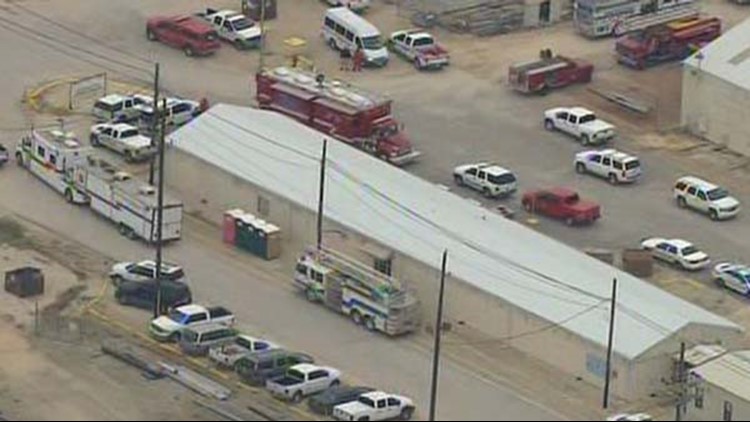HOUSTON — More than six years after a toxic release killed four employees at the Dupont plant in La Porte, the company and a former executive have been indicted.
The workers died on Nov. 15, 2014 when 24,000 pounds of methyl mercaptan - a highly toxic, flammable gas - were released.
Two of the victims, Robert and Gilbert (Gibby) Tisnado, were brothers. DuPont identified the two other victims as Wade Baker and Crystle Wise.
A federal grand jury in Houston returned the indictments against Dupont and Kenneth Sandel on charges of violating federal safety regulations and negligently releasing a hazardous substance.
Sandel ran the Insecticide Business Unit (IBU) at the La Porte plant and was responsible for ensuring employees followed federal safety regulations.
The indictment alleges Sandel and DuPont engineers devised a plan to divert a large volume of methyl mercaptan gas into a waste gas pipe system during the day before and night of the deadly incident.
Two of the workers died when they tried to clear a vent they didn’t realize contained the deadly gas and two others died when they responded to the distress call.
"Gibby went in there, found his brother and tried to put his mask on him, they found him trying to do that," the brothers' father, Gilbert Tisnado, said in 2014. "When you're brother is down you're going to go down with him."
A Chemical Safety Board report in 2015 said the building where the workers died "was not equipped with an adequate toxic gas detection system" and that two rooftop ventilation fans were not working, despite an urgent work order written nearly a month earlier."
Sandel is accused of failing to implement necessary procedures to evaluate safety aspects of that plan and to keep workers from opening the pipe to the atmosphere.
At the time, the IBU produced pesticides called Lannate and Vydate, among other products.
It has since been demolished.
If convicted of the federal safety regulations violations, Sandel could get up to five years in federal prison. The negligence charge could add another year to his sentence. Both convictions also carry a potential fine of $250,000.
The company itself faces potential fines of $500,000 or twice the gross gain derived from the crime, whichever is higher.
Dupont was also ordered to pay a $3.1 million civil penalty.
Sandel, 49, Friendswood, and representatives of DuPont were scheduled to appear in federal court Tuesday morning.
The EPA’s Criminal Investigation Division conducted the investigation with assistance from the Texas Environmental Enforcement Task Force.



